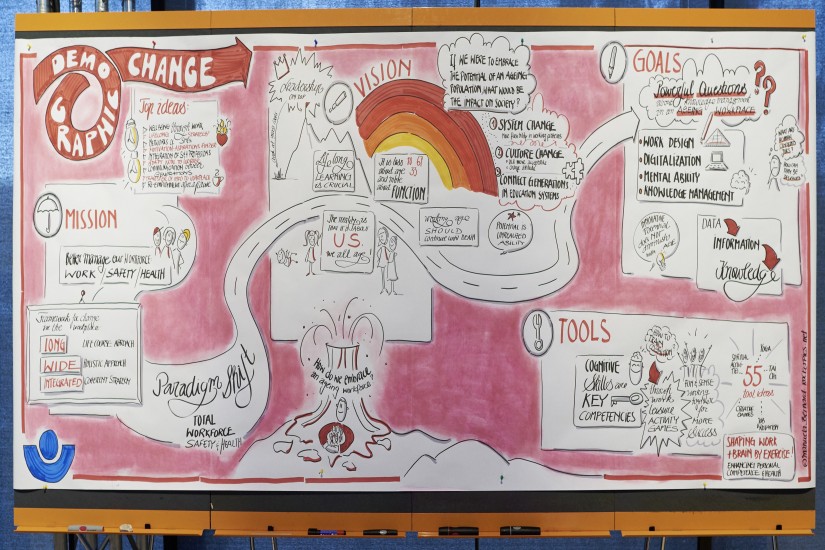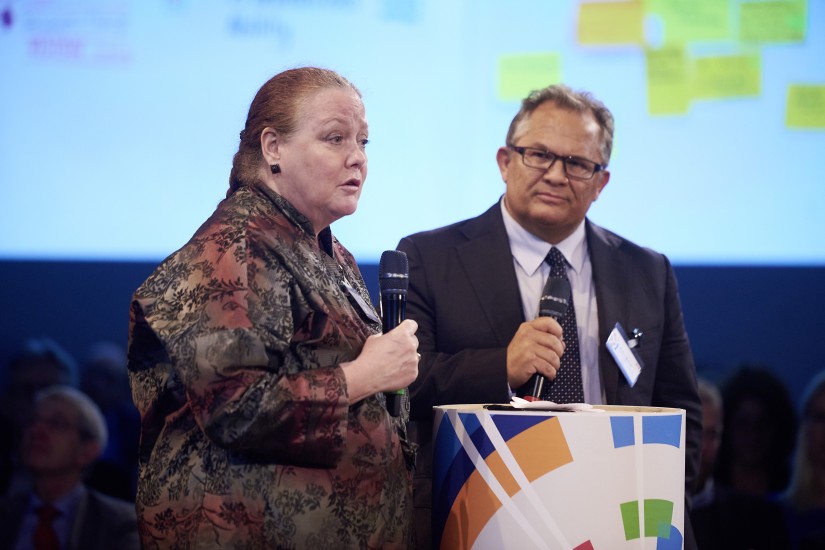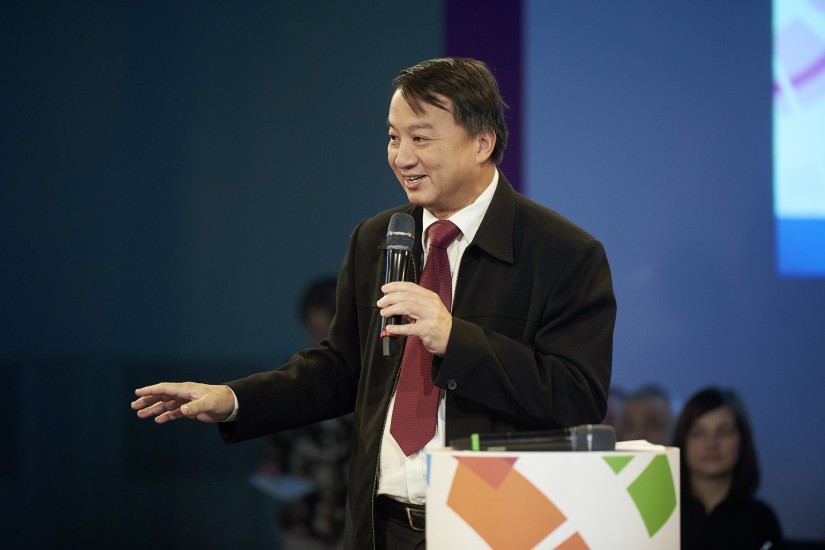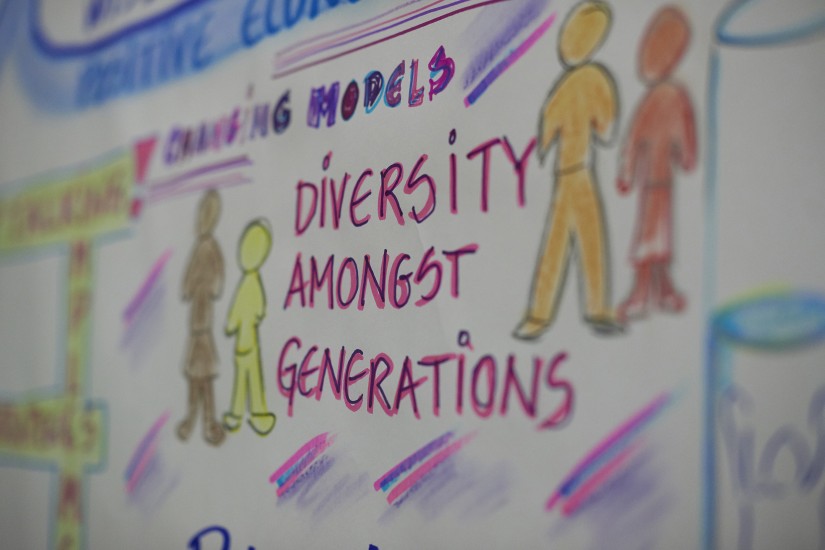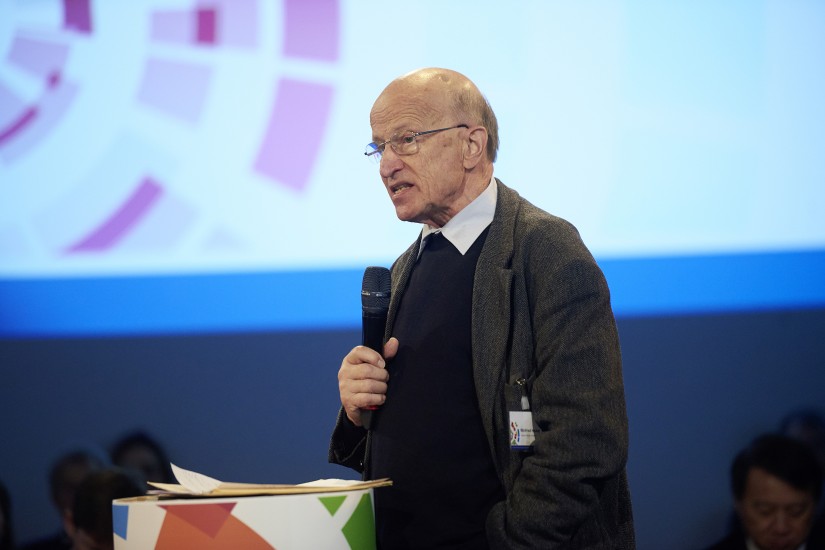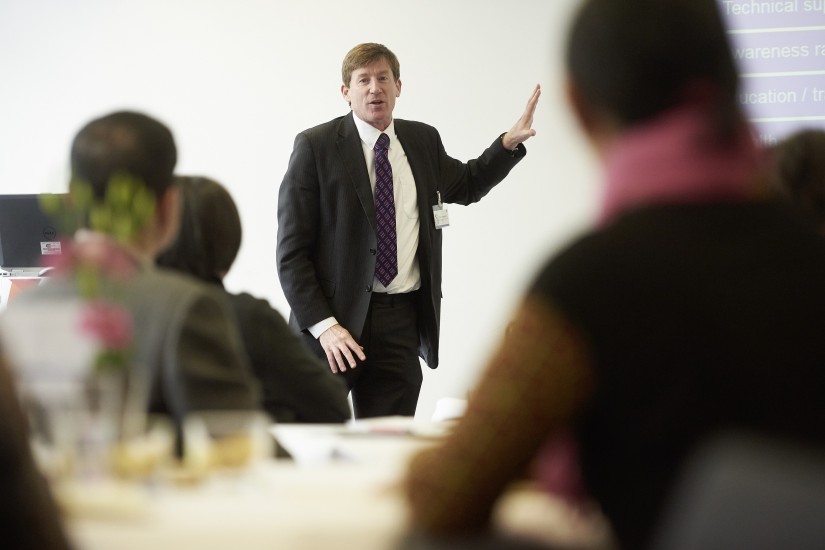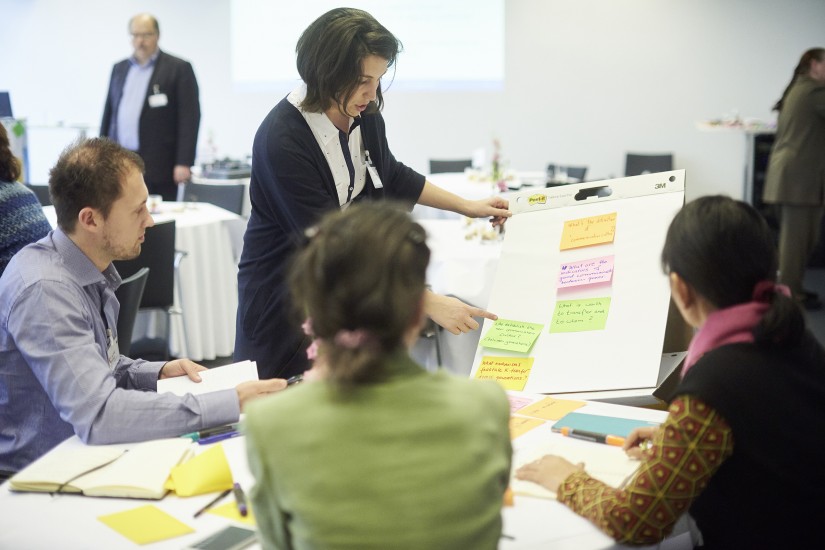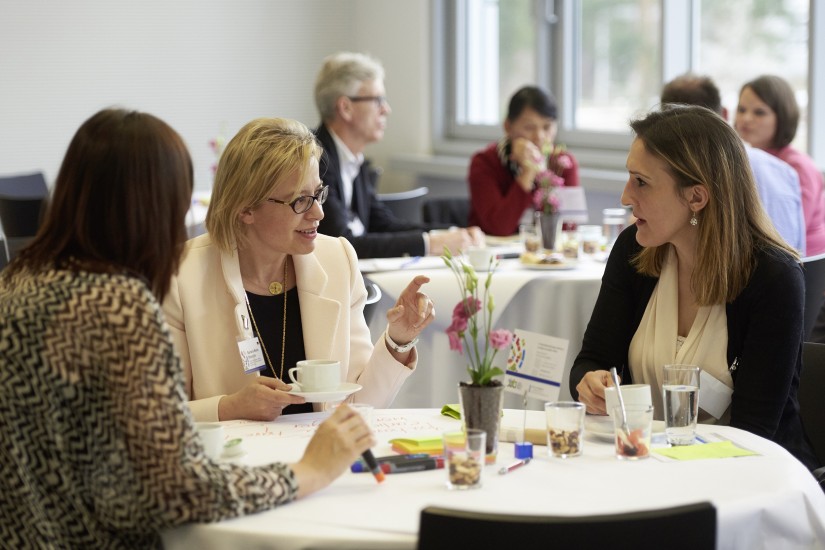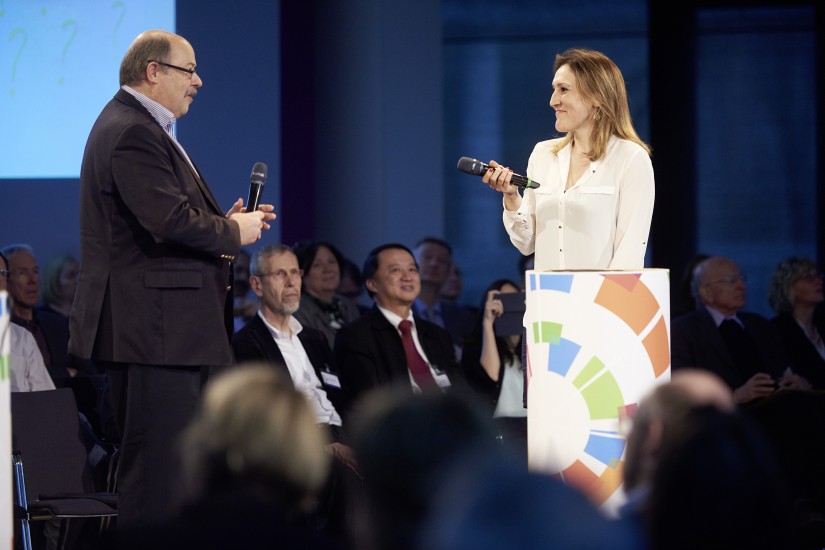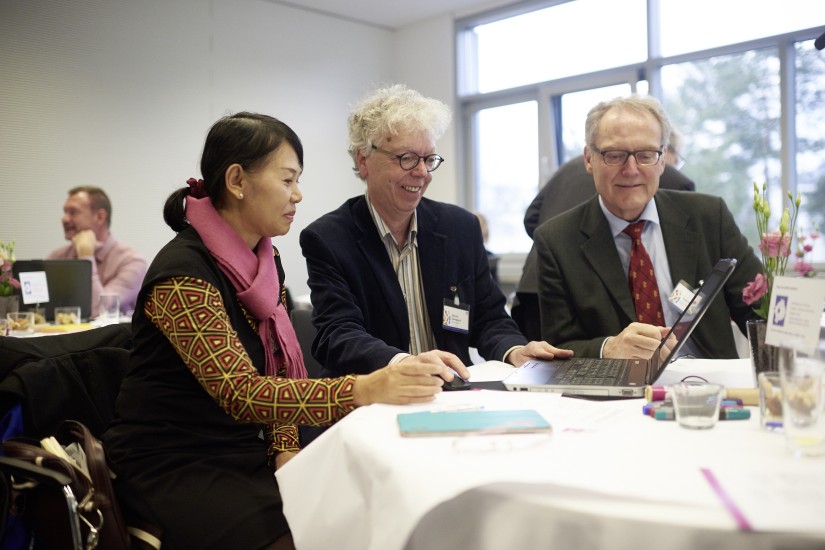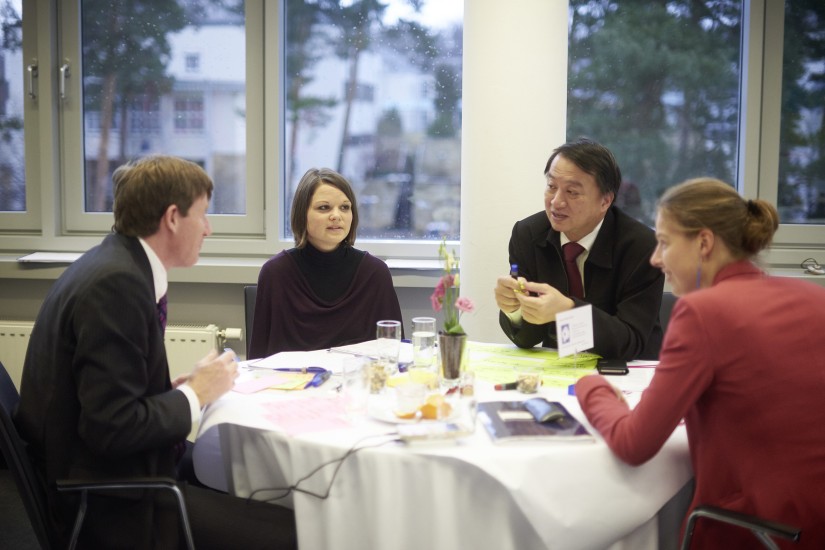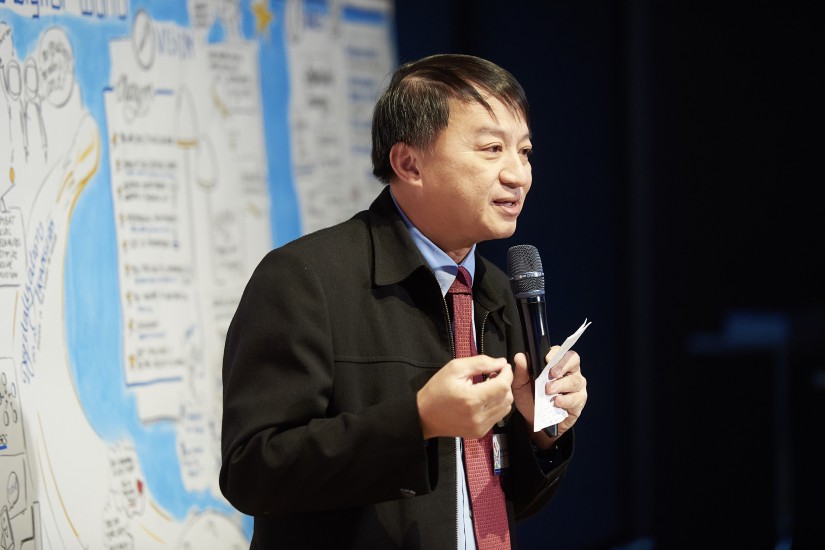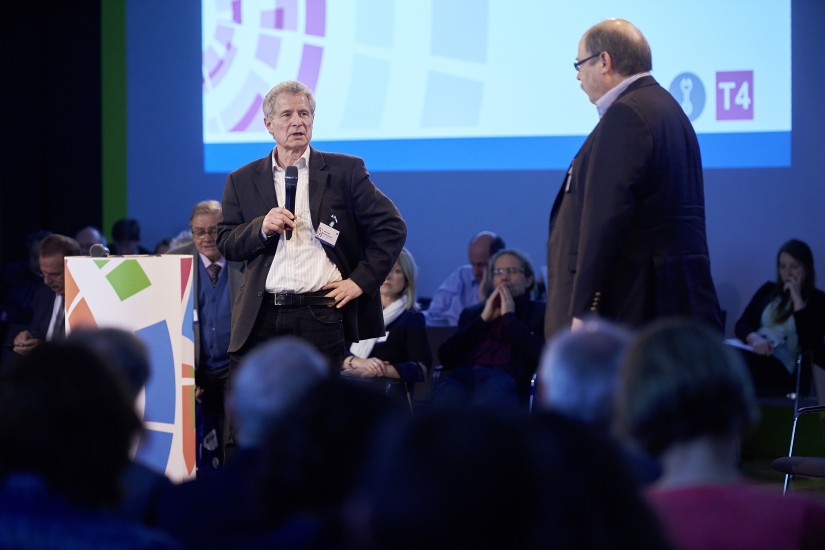T4 - Demographic change
“Embrace the potential of an ageing population”
As a result of demographic change, the average age of workers will rise in many parts of the world in the coming years. The challenges and opportunities of an increasingly ageing workforce was the focus of the fourth topic area of the 4th International Strategy Conference.
Colin Milner from the International Council on Active Ageing (ICAA) declared from the outset, that demographic change not only affects companies: “In reality, we are all ageing, it’s about us”. An age-appropriate working life must be the goal for everyone, where maintaining the ability to work is a decisive strategy in order to enable healthy ageing. The participants at the conference noted that the key factors in this process are inclusivity, transparency, trust and leadership.
Achieving this goal requires a paradigm shift in perception; this was agreed upon by everyone who participated in Topic 4: older employees are not a burden to a company, but rather they are a valuable resource from an economic and social perspective. “The ageing workforce represents a potential of untapped abilities and competences. We need to see, acknowledge and make use of this potential”, said Siong Hin Ho, Commissioner for Workplace Safety and Health, Singapore Ministry of Manpower (MOM). Singapore has set an example of this integrative approach. Health, safety and work are closely interwoven in Singapore’s inclusive Work-Life Strategy. Health promotion measures and OSH should not just come into play at an advanced age. Workers should be able to work during their entire career without work-related physical or psychological limitations.
Timothy Tregenza, European Agency for Safety and Health at Work (EU OSHA), called for a new flexible framework in which work is adjusted to the needs of workers: “We must adapt work to the worker. Workplaces have to be dynamic and adaptive.”
The participants stated that a key measure to deal with demographic change is knowledge transfer between generations. “Not all information becomes knowledge and not all knowledge results in specific behaviour”, said Winfried Hacker from TU Dresden. The focus must move from purely transferring knowledge (one-way) to exchanging knowledge (two-way) and then generating new knowledge through the use of synergies.
Good job design, a change from physical and cognitive requirements as well as an intergenerational and intragenerational open dialogue ensure that ability to work is maintained at a high level even in old age and that important resources in the company such as knowledge and experience can be constantly circulated and expanded upon.
However, the way work is designed and structured does not always result in employees being able to remain in a constant process of knowledge growth and learning. In this situation, training which accompanies work should ensure that employees remain cognitively fit. Similar to exercise and activity breaks at work, it is important that the mind also be constantly trained. Michael Falkenstein from the Institute for Working, Learning and Ageing (ALA) presented PC-based exercises which maintain cognitive abilities. The participants had a lot of fun trying these out at the conference.
